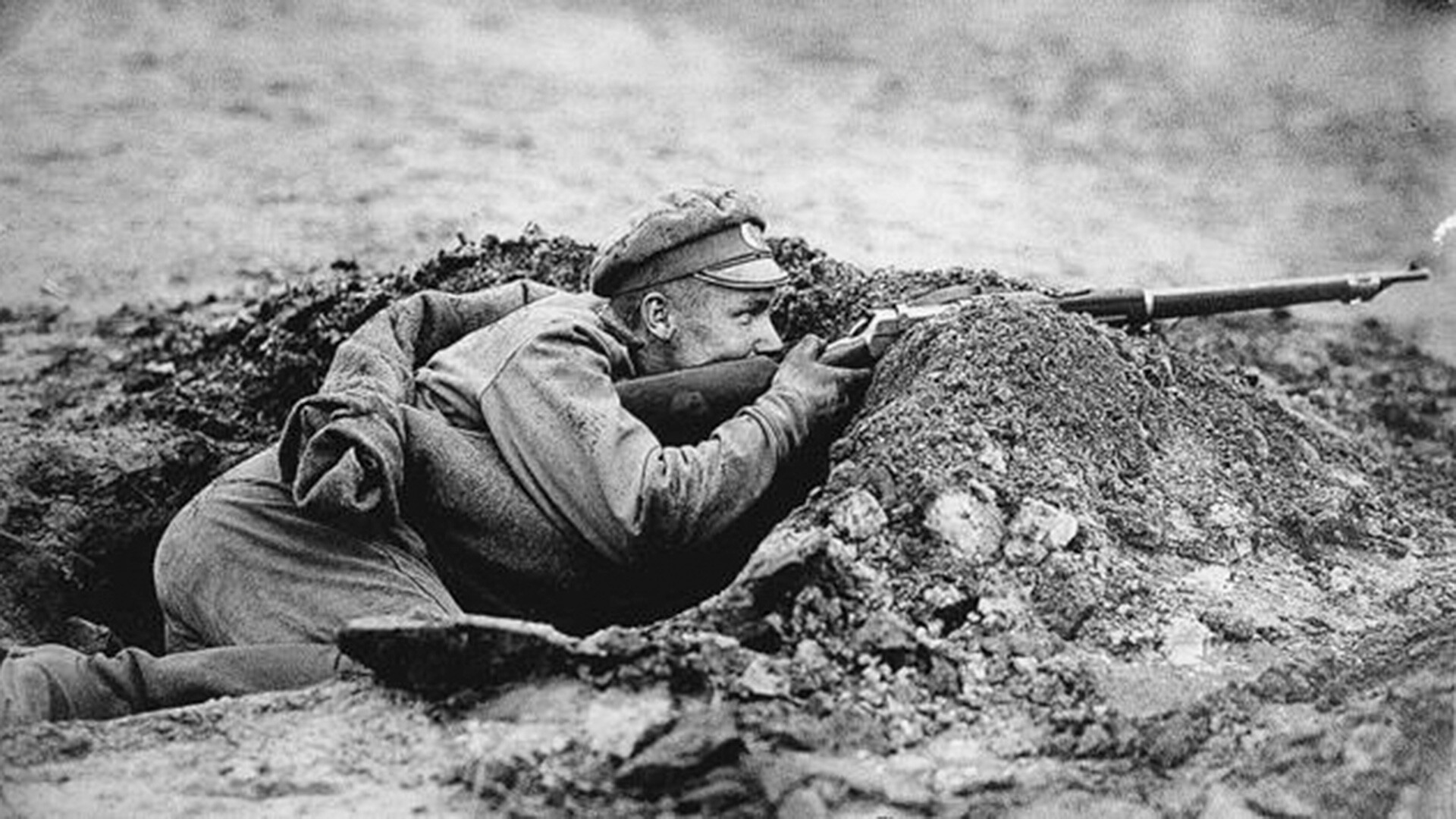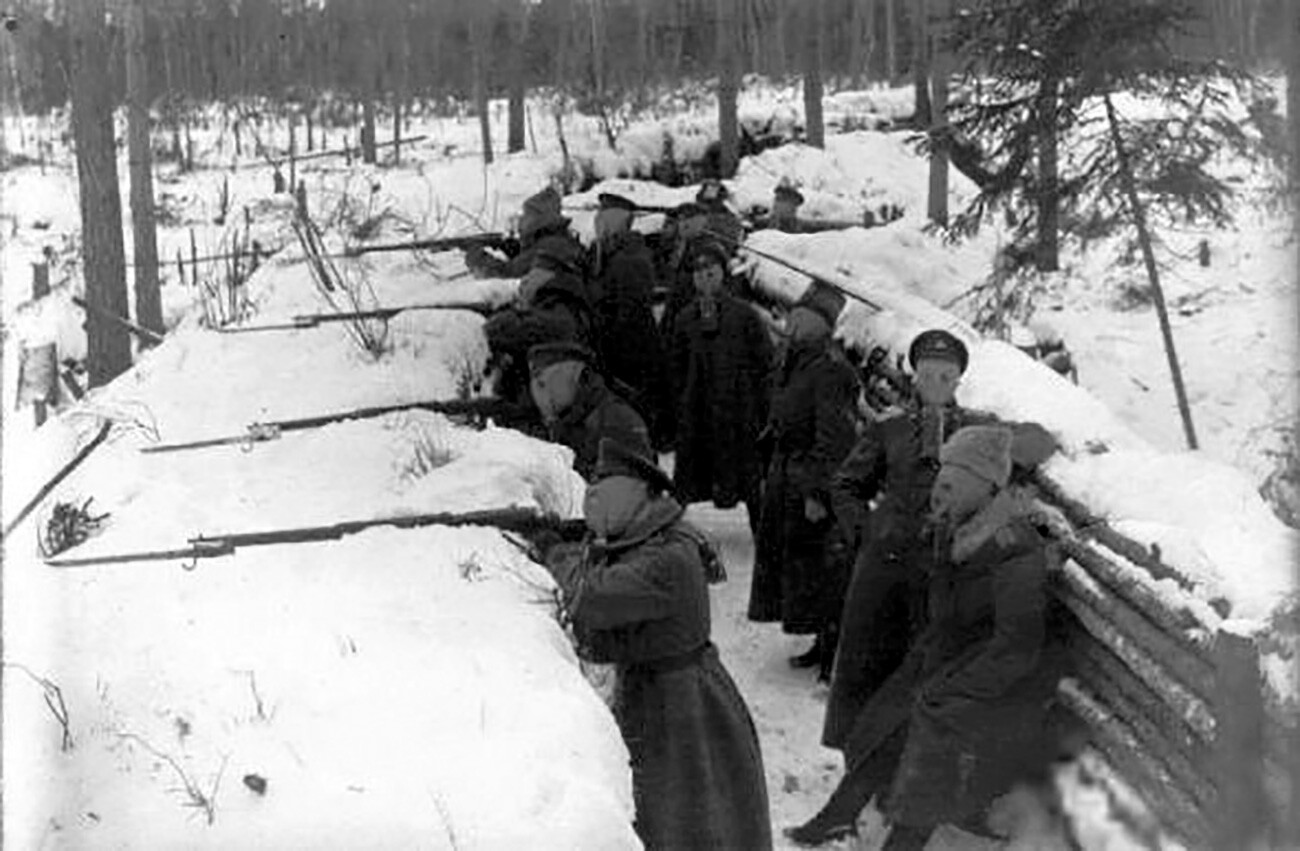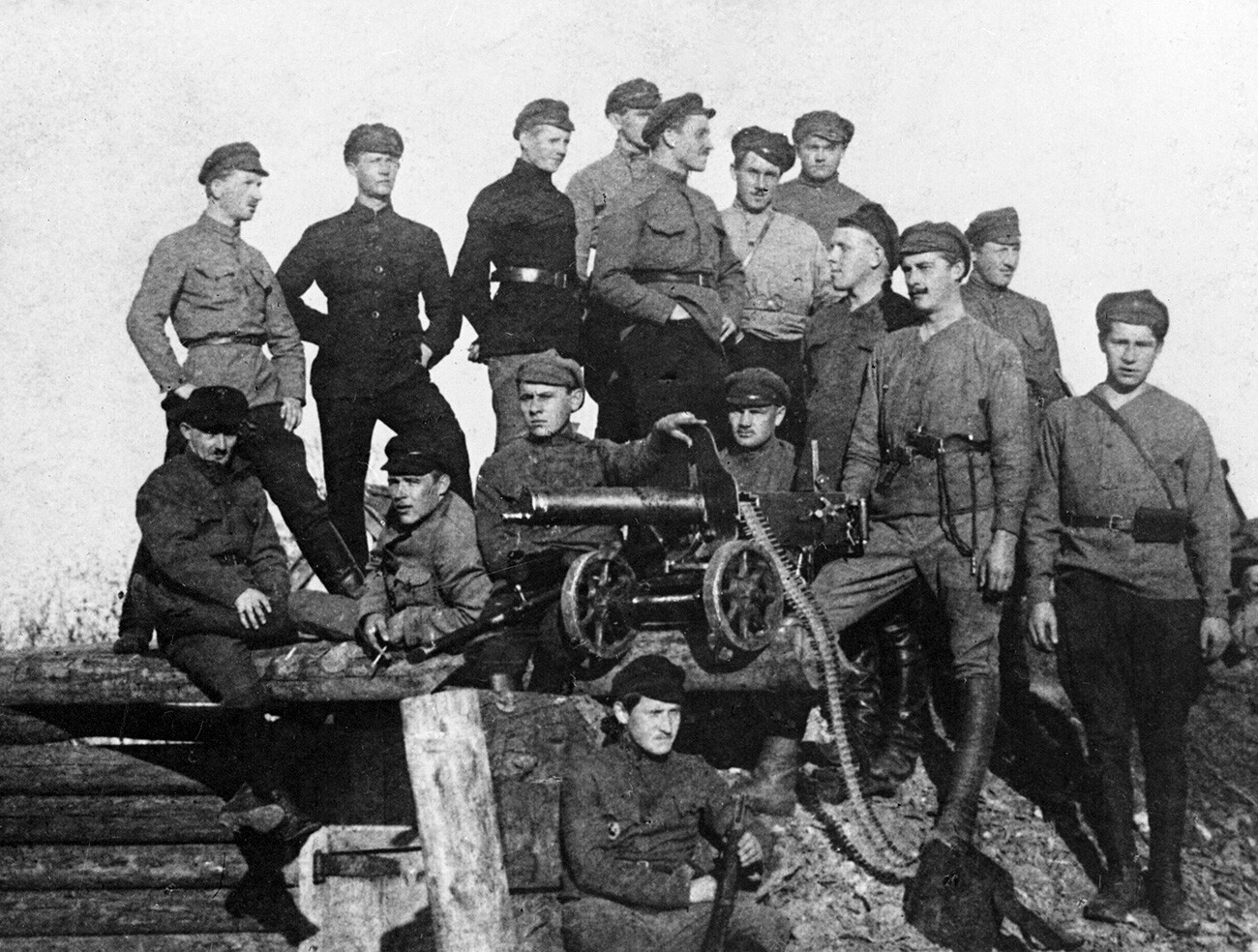
More than 250,000 foreigners fought for "world revolution" during the Civil War in Russia. The Red Army's international units confronted the enemies of Soviet power in the Urals, Siberia and other parts of the country.
Polish, German, Austrian, Romanian, Finnish, Czech, Croatian and Serbian volunteers all contributed to the Bolshevik victory. However, the most numerous and most prominent groups among the foreigners in the Red Army were the Hungarians, Latvians and Chinese.
They were not only known for their bravery and fortitude on the battlefield, but also for their exceptional efficiency and ruthlessness in punitive operations.

At the beginning of the Civil War, there were about 500,000 Hungarian soldiers in Russian captivity. The Soviet government invited them to join the ranks of the young republic's armed forces "to save the Russian Revolution and launch an armed struggle for the liberation of the Hungarians, Hungarian workers and Hungarian peasants".
The majority chose to stay in the camps and await the opportunity to return to their homeland. Nevertheless, some 60,000 answered the call to fight against the "oppressors of the working class".
The Hungarians in the Red Army were considered to be among the most combat-ready soldiers. They had fighting experience and were distinguished by their cohesion and fortitude. "The Magyars fought to the last drop of blood," recalled a Red Army soldier, Gennady Militsin.

Detachments of former Hungarian hussars confronted the famed White Cossack cavalry on equal terms. They refused to fight in Red Army tunics and trenchcoats, preferring their traditional red breeches, blue hussar's pelisse (a short fur-trimmed jacket) and red hussar's kepi (a cap with a flat circular top and a peak or visor).
The Hungarians played an important role in establishing Soviet power in Siberia, the Urals and the Volga region. In March 1919, a certain proportion of them went home to defend the recently-proclaimed Hungarian Soviet Republic. They eventually failed to consolidate the "power of workers and peasants" there – in August, the republic was toppled.

In World War I, Latvian rifle units were among the most capable units in the Russian imperial army. During the revolutionary events of 1917, an overwhelming proportion of their men joined the Bolsheviks.
"We shall immediately act with the full force of our arms against all manifestations of counter-revolution from whatever quarter they may threaten," said a resolution of the 6th Latvian Rifle Regiment. They were deployed in a firefighting capacity, as it were, to the most important fronts of the Civil War.
In 1919, the Red Latvian Riflemen defended Petrograd (now St. Petersburg) against Nikolai Yudenich's Northwestern Army and Moscow against General Anton Denikin's troops. In 1920, they took part in dealing the finishing blows to what was left of Pyotr Wrangel's White forces in Crimea.

The riflemen also fought for the establishment of Soviet power in their homeland, but they failed in this endeavor. Almost half a year after their defeat in January 1920, Vladimir Lenin's government was forced to recognize the independence of the (bourgeois) Republic of Latvia.
The Latvians enjoyed the almost limitless trust of the Bolsheviks and effectively performed the role of the "Kremlin's praetorian guard". They were entrusted with guarding key strategic locations in Moscow and protecting members of the top state leadership.
In addition, the efficient and disciplined Red Latvian Riflemen were frequently brought in for punitive operations and the suppression of anti-Bolshevik revolts. Because of their ruthlessness, there was a popular saying that went: "Don't look for an executioner, but call for a Latvian!"
After the Civil War, many former riflemen took up key posts in the USSR armed forces and state security bodies. The majority of them later perished in the ‘Great Terror’ of the late 1930s.

In 1917, up to 200,000 Chinese were living in Russia – employed in hard jobs in industry, agriculture and construction. Tens of thousands of them joined the ranks of the Red Army.
Some hoped to earn a crust, while others were none too averse to exploiting the turmoil sweeping Russia to engage with impunity in robbery and banditry. Meanwhile, for the majority of volunteers, the ideology of Socialist Revolution was something close to their hearts.
Chinese soldiers rapidly earned the reputation of being among the most disciplined and combat capable troops in the Red Army. "The Chinaman is unfaltering and afraid of nothing. His own brother can die in battle and he won't bat an eyelid… Once he realizes an enemy is opposing him, woe betide the enemy. The Chinaman will fight to the end," wrote Soviet military commander Iona Yakir in his 'Memoirs of an Old Red Army Soldier'.
The 40,000 Chinese soldiers never operated as a single fighting force, however. Detachments numbering no more than 2,000-3,000 men each were formed throughout the country and fought as part of larger Red Army formations. For instance, Chinese soldiers served in the 25th Rifle Division of the legendary Red commander Vasily Chapayev, Semyon Budyonny's celebrated 1st Cavalry Army and even among Vladimir Lenin's bodyguards.
The 225th Chinese International Regiment commanded by Ren Fuchen was one of the most effective Red units in the Urals and Siberia. After he was killed on November 29, 1918, the commander was posthumously awarded the ‘Order of the Red Banner’, while Lenin personally met his widow and children.
The iron discipline of the Chinese soldiers was not just manifested in battle. Their readiness to obey and unquestioning submission to orders were particularly useful in punitive operations and executions. Where Russians could have flinched, the Chinese acted efficiently and without emotion.
After the Civil War, the majority of Chinese returned home. Once there, with their military experience, combat training and ideological grounding they rapidly became the core of the Chinese Communist Party.
If using any of Russia Beyond's content, partly or in full, always provide an active hyperlink to the original material.
Subscribe
to our newsletter!
Get the week's best stories straight to your inbox